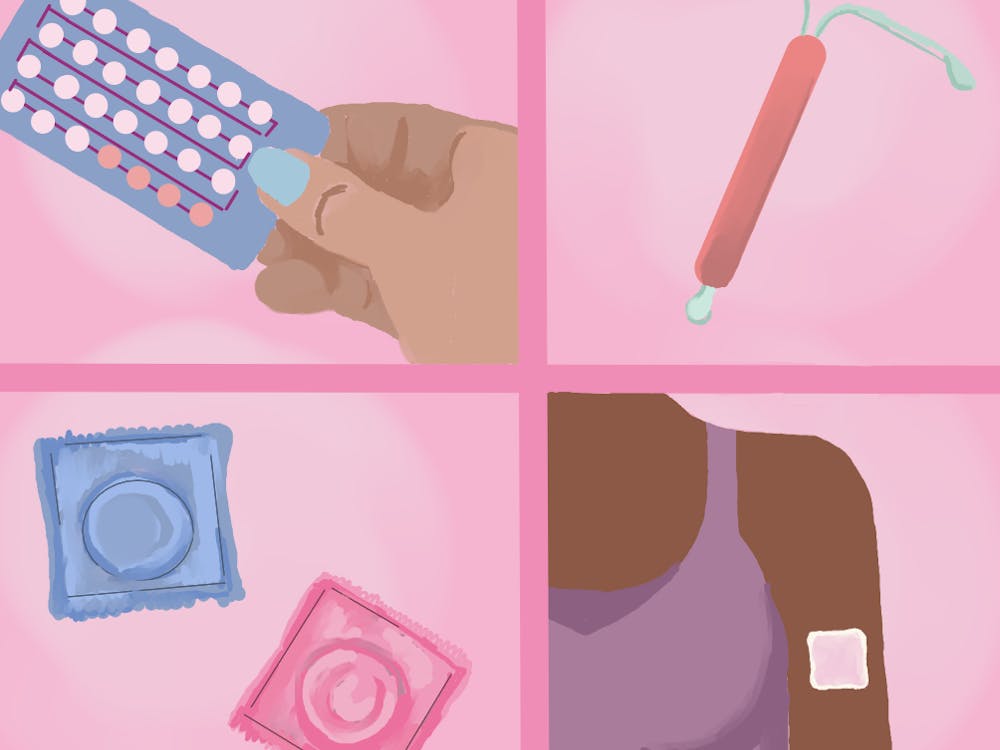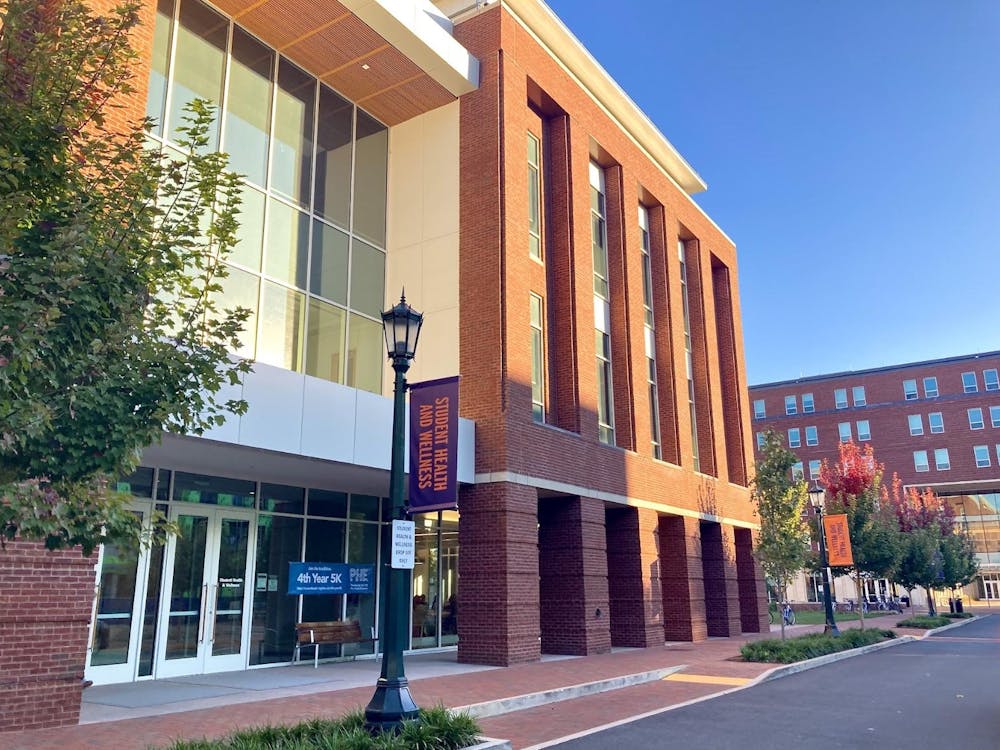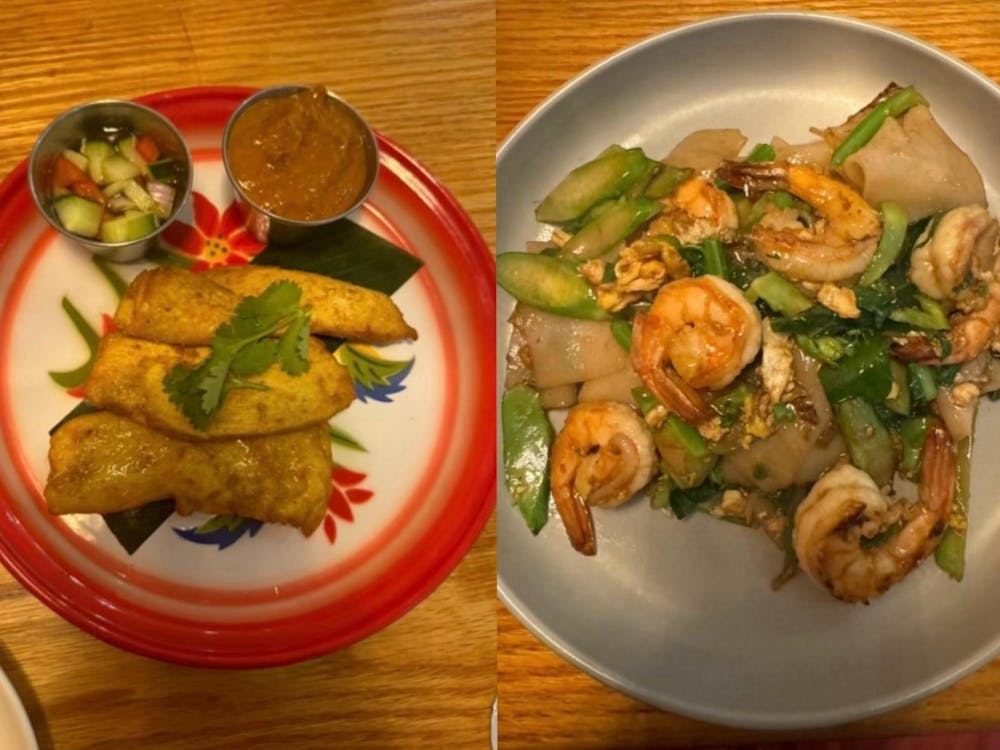The man, the myth, the swiper: \nDean Caulfield
Dean Caulfield - "as in Holden," he said - is the first person you see upon entering Observatory Hill Dining Hall. As the lead cashier, he interacts with hundreds, if not thousands, of students each day.
"If it wasn't for that interaction, I wouldn't still be here," he said. "That's part of the joy of the job."
But there's more to Caulfield than an unconventional card-swiping method. For example, his last haircut was in 1984.
"That's when I was working the graveyard shift at the John Marshall hotel in Richmond," he said. He's worked at the University since 1985.
Caulfield was born in Takoma Park, Md. in 1961. After living in Grand Island, N.Y., a small town north of Buffalo, he moved to Arlington, Va. in 1973. After five years there, he moved to Richmond and began studies at Virginia Commonwealth University in 1980.
"I started out thinking chemistry, ended up in psychology," Caulfield said. He said whereas most go to college to build a career, he was more interested in learning.
"For that reason I cared less about grades than I should have," he said. "I never graduated but I sure had a lot of fun."
After his time at VCU, Caulfield hitchhiked around the country for two-and-a-half months.
"I was out of school and out of work," he said. "I made it to Charlottesville twice. The second time I didn't leave."
Caulfield hasn't thumbed a ride since, but he's cultivated a number of interests during his time in Charlottesville. He plays a few songs on the guitar every morning - what he called "part of my morning meditation" - and boasts an enthusiasm for politics. His next reading project is Adam Smith's "The Wealth of Nations," he said.
"I have a strong libertarian bent," he said. "I'm not referring to the Libertarian Party; I'm referring more to libertarian principles. My own politics all center around my belief that in our society, all rights and responsibilities have to start with the individual."
Caulfield practices what he preaches and stands by choices that are at times nonconformist.
"I made the decision when I was 18 not to have children," he said. "I also made the decision not to drive while fossil fuels were being used." He still doesn't drive - to get to work, he takes the bus or walks from his home near the University Research Park.
It's debatable whether one can call his two-handed swiping method libertarian, but it's certainly individualistic.
"Using two hands ... you can get the most speed out of your machine," he said. "All the other things, like behind-the-back, grew out of ergonomics."
In his free time, he enjoys watching baseball and hockey. Although many just know Caulfield as a welcoming cashier, the man behind the desk has had quite a life.
"It helps when you take the road less traveled," he said.
O'Hill's very own chef: \nBrett Migliore
Many students may not realize that a classically trained chef prepares the dishes they enjoy at Observatory Hill Dining Hall. Brett Migliore began his term as O-Hill's executive chef last January. He said he'd never before prepared food on such a large scale.
"All the students have different palates, different tastes," he said. "It's ongoing every day trying to make everyone happy."
But culinary challenges are nothing new for Migliore.
"My hands were in the dough at 10 years old," he said. "I come from a big Italian family, so we were always in the kitchen cooking."
He was born and raised in Long Island, where he got his first taste of professional cooking.
"My grandparents had bakeries in New York City, so I grew up in the business," he said.
After attending the Art Institute of Fort Lauderdale on a scholarship for advertising and design, Migliore continued his education at the Culinary Institute of America in upstate New York.
"After art school, I was kind of in limbo," he said. "Once I got to CIA and saw the school, I fell in love with it."
Culinary school was "a good outlet," he said. "I was still able to be artistic, but now my artwork was edible." Migliore also holds a degree in hotel administration from Cornell.
Much of Migliore's hands-on experience as a chef comes from his time at Disney's Grand Floridian. The resort was a celebrity hot spot; Migliore said he met Sidney Poitier, Bob Dylan, Steven Spielberg and Tom Cruise, among others. In addition to cultural icons, Migliore also encountered a cultural culinary clash while working alongside an Alsatian French chef at the Grand Floridian.
"We always fought," he said. "It was a very interesting time. We always butted heads but we were best friends."
Many of their disagreements stemmed from national differences in how chefs are trained. European chefs often start in apprenticeships at the age of 10, Migliore said, and painstakingly work their way up.
"In America, a lot of the students go to culinary school and think they're a chef," he said. "But you're truly not a chef until you get the experience you need."
After his stint at the Grand Floridian, Migliore taught in the culinary program at Central Florida Community College for five years. After the program was cut, he headed to the University. He said his wife found him the executive chef position.
"What brought me to Charlottesville was my wife," he said. "Her family lives here. She followed me to North Carolina, she followed me to Florida, so I said, 'the next move's yours.'"
While he no longer instructs in a formal capacity, he said much of his work includes training chefs.
"I'm still constantly teaching," he said. "But here it's hands-on."
Though he's a formally trained pastry chef, Migliore said he doesn't have a sweet tooth.
"I like comfort foods, foods that I grew up with," he said. "I like real simple dishes. I like to keep the food simple and let the flavors stand out on their own"





